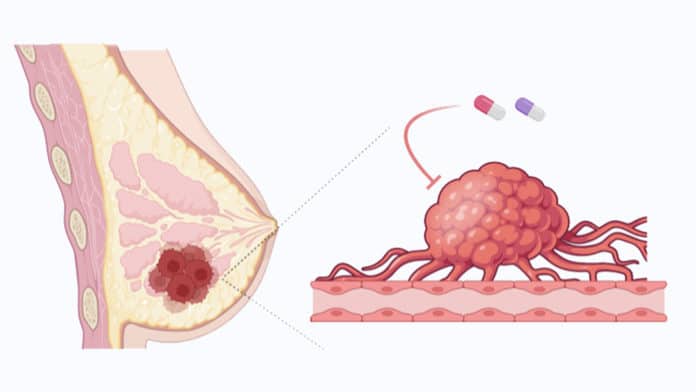Some breast cancer patients develop resistance to standard treatments. This happens when cancer cells evolve to develop ways to circumvent the mechanisms by which the treatment works.
Estrogen plays a harmful role in the majority of patients with breast cancer. Mainly, the tumor contains a receptor for this hormone.
When estrogen binds to its receptor, it stimulates the growth of cancer cells. Specialists often prescribe hormone therapy to treat these tumors sensitive to hormones. Hormone therapy involves a drug treatment to prevent the female hormone’s stimulation of cancer cells.
Tamoxifen is the standard molecule used in the treatment of hormone-sensitive breast cancer. This molecule works by binding estrogen receptors to block them, thereby stimulating the growth of cancer cells.
However, in about 40% of treated patients, the cancer cells eventually develop resistance to this molecule. The University of Geneva (UNIGE) team has identified a molecular regulator involved in these resistance mechanisms.
Using a genetic approach on cancer cell lines, scientists looked for factors that promote the development of tamoxifen resistance.
Vasiliki Vafeiadou, a master’s student in the Department of Molecular and Cellular Biology and first author of the study, said, “We used the CRISPR/Cas9 molecular scissors technique to generate cells in which a different gene was removed each time. We then observed the cancer cells able to proliferate even in the presence of tamoxifen.”
In this way, scientists identified that low levels of the SPRED2 protein cause cancer cells to become resistant to treatment. The presence of this protein in enough quantity prevents cell growth by blocking a signaling pathway that activates cell proliferation.
Dina Hany, a researcher in the Department of Molecular and Cellular Biology and co-lead author of the study, said, “By analyzing databases listing the expression levels of certain genes in patients, we were able to see that those with low levels of SPRED2 have a poorer prognosis.”
Journal Reference:
- Vasiliki Vafeiadou, Dina Hany, Didier Picard. Hyperactivation of MAPK Induces Tamoxifen Resistance in SPRED2-Deficient ERα-Positive Breast Cancer. DOI: 10.3390/cancers14040954
